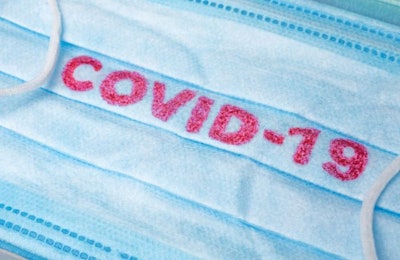
People for the Ethical Treatment of Animals (PETA) has released several statements regarding the letters they sent to CEOs at companies like Tyson Foods, Cargill, and Smithfield Foods.
After a Tyson plant in Iowa was closed because dozens of its employees tested positive for COVID-19, PETA wrote to Tyson CEO Noel W. White, calling on him to get ahead of the curve and transition to producing exclusively vegan meat alternatives because conditions inside slaughterhouses and meat markets are breeding grounds for diseases and threaten the health of every human being on the planet, PETA President Ingrid Newkirk explained.
Sure, the possible source of COVID-19 is a wet market in Wuhan, China, but the modern food supply cold chain, especially in the U.S., is safer and far more sophisticated. It should not be called out for diseases that threaten human lives.
In all three letters, PETA said that it is willing to help cover the cost of retraining the company's employees.
"PETA is calling on Tyson to ditch its current business model, recognize the growing interest in plant-based foods as well as the necessity to move away from foods made from animal flesh, and reinvent itself as a producer of healthy and 100% humane vegan meat."
PETA fails to address the fact that you cannot get COVID-19 from meat and instead of addressing concern for the employees who are considered essential, they tried to further the organization's agenda – which is rather tacky in my opinion. Let us just for a second consider a world where no one consumed animal meat, you would still need essential employees to get the food packaged and shipped for retail sales. Not to mention the financial impact this would have on livestock and poultry farmers long after the virus is gone.
The press release regarding Cargill wasn't much different, "Because a Cargill meat processing plant in Pennsylvania was shuttered after its employees reportedly tested positive for COVID-19 — and since the company announced that it'll also be closing an egg factory there because of decreased demand as well as cutting back hours at a cow slaughterhouse in Alberta, Canada, amid the pandemic."
The Cargill egg facility may be a breaking plant, which might be shut down because of reduced foodservice demand. Those of us who follow the egg industry know that retail egg sales actually increased due to COVID-19 panic buying.
In the press release about Smithfield, PETA said that because a pig slaughterhouse in South Dakota was temporarily shut down because nearly 300 of its employees tested positive for COVID-19 that Smithfield Foods CEO Kenneth Sullivan should get ahead of the curve and transition to producing exclusively vegan meat alternatives.
Again, we are still going to need employees to get vegan products to the shelf. Also, vegan products generally cost more than traditional livestock protein, so why is it reasonable to believe that when the economy is suffering, and people are losing jobs daily that people should buy a more expensive product. Hence the increase in demand for eggs that the industry saw.
It is crazy to me that an organization that has supposedly built its reputation on ethical principles for animals, has no moral respect for human lives or businesses that are trying to provide food to people in a time of need.
Of course, I do not agree with their anti-meat agenda, however, I do think PETA brought up one thing to consider, it will be interesting to see how some companies restructure business models where applicable after COVID-19. Will firms realize that working from home is doable and, in some cases, more economical?
View our continuing coverage of the coronavirus/COVID-19 pandemic.

















